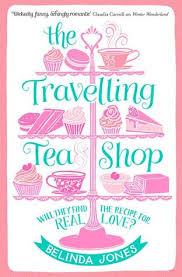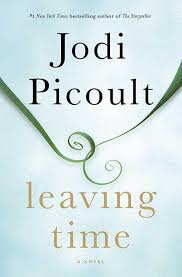I Will Marry George Clooney (By Christmas) by Tracy Bloom

I Will Marry George Clooney (By Christmas) by Tracy Bloom was a light and mostly entertaining read, apart from the heroine’s issues with her horrible teenage daughter.
The title of this novel was the only reason I picked the book up. This title would have worked equally well using any number of other actors,* but at the time this book was written, George Clooney was probably the most well known bachelor in the world. Now, of course, he is married and not nearly as interesting as he used to be.
Michelle, the 36 year old single mother of the afore-mentioned horrible teenage daughter, works in a chicken factory. She gave up her dream to be a chef when she fell pregnant with her daughter Josie, who is now 15. Michelle has never disclosed to her parents, her best friend or her daughter, the name of Josie’s father. Who Josie’s father is, is a complicated matter. To set you straight from the beginning, it wasn’t George Clooney. Michelle obviously has a bit of a crush on George Clooney, or at last the character he played in a movie called One Fine Day.
Josie is a pain in the neck. She and Michelle constantly butt heads, very often over Josie’s attachment to her loser boyfriend, Sean. (My advice to Michelle would be to pretend to love Sean as a future son-in-law, in a type of reverse psychology thing, as then Josie would have realised Sean was a loser much sooner than she actually did).
Michelle is horrified when Josie announces that she intends having sex with Sean at Christmas, when she turns 16. Michelle makes a deal with Josie that if Michelle marries George Clooney, then Josie will abstain from giving Sean this particular present.
Josie ridicules Michelle’s likelihood of marrying George Clooney, but agrees to the deal. (I’m with Josie on this one, as short curvy women who work in chicken factories don’t seem to be Mr Clooney’s type). However, Josie spends most of her time ridiculing Michelle and it gets a bit tiresome after a while. (My next piece of advice to Michelle would be not to buy into Josie’s ridicule, as it only encourages her to continue behaving badly).
Michelle pursues George Clooney by organising a charity event for Not On Our Watch, which is actually a real charity founded partly by George Clooney, Brad Pitt, Matt Damon for the purposes of providing relief and humanitarian aid to the victims of human rights violations. Michelle sends an invite to the charity event which is being held on a day when George Clooney is in London for a movie premiere. The event raises a significant amount of money, however George Clooney does not attend Michelle’s fundraiser. (Don’t think too badly of him. Obviously he couldn’t attend, because Michelle is fictional).
During the course of the story Josie’s father turns up, and Michelle, Josie and an old boyfriend of Michelle’s drive to Lake Como in Italy to hand over the cheque to George Clooney. The characters also manage to resolve some family issues.
I probably wouldn’t read another book by this author. The heroine’s delusion about marrying George Clooney was funny but not strong enough to carry the whole novel. Plus, Josie’s behaviour was terrible. Her character would seriously put would-be-parents off having children. However, if the author writes I Will Marry Johny Depp I may rethink my decision.
*How about, I WILL Marry Colin Firth Tomorrow. That’s true, I would. Or I would if I knew him and he wanted to marry me too and I wasn’t already married. I hope he isn’t already married too, because then it would get messy. I would also consider I WILL Marry Brad Pitt if He and Angelina Jolie Get a Divorce, although I wonder what the magazines would make of that. I don’t think photos of me alongside Angelina Jolie would do me any favours at all. Probably my ego couldn’t cope with the criticism which would likely come my way from stealing gorgeous Brad from the beautiful Angelina. I WILL Marry That Gorgeous Fellow Who Was in that Movie With Whats-Her-Name, You Know the One? might be more suitable. We’ll see.









Recent Comments